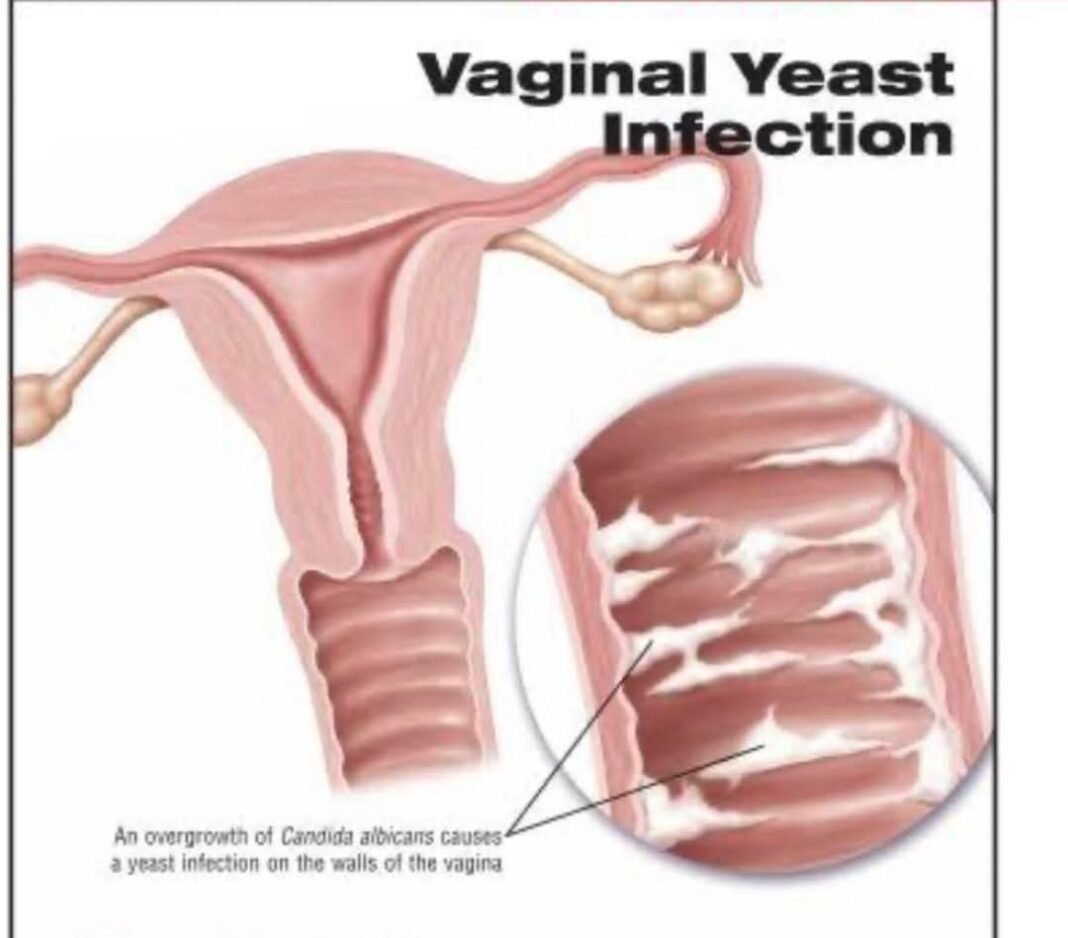Vaginal Candidiasis – symptoms, causes, treatment and prevention
You cannot skip the candida conversation when discussing infections that affect ladies. Also know as yeast infection, it affects pregnant ladies a lot.
What is Vaginal Candidiasis?
Vaginal candidiasis is also known as a yeast infection, occurs when there is an overgrowth of yeast, mostly a fungus called Candida, in the vagina.

This overgrowth disrupts the normal balance of microorganisms, leading to symptoms that can cause discomfort.
What causes it?
– Antibiotic Abuse
These can kill off the good bacteria in the vagina that normally keep yeast in check.
– Hormonal Change
Pregnancy, birth control pills, or menopause can alter hormone levels, which might increase the risk.
– Diabetes
High blood sugar levels can help yeast grow more easily.
– Weak Immune System
Conditions like HIV or medications like steroids (prednisolone, dexamethasone) can weaken the body’s defenses against infections
– Tight Synthetic Clothes
This will trap moisture and create a perfect environment for yeast growth.
Symptoms
– Burning and itching in the vagina
– thick white discharge, it usually does not have a strong odor.
– The vulva may become red and swollen due to irritation.
– Pain during sex and urination
Treatment Options
Yeast infections are usually treated with antifungal medications, which can be prescribed or bought over the counter
These come in creams, tablets, or pessaries. It is important to complete the full course of treatment even if symptoms improve to prevent recurrence
You can consider adding probiotics to your intake, probiotic yoghurt is a good choice. Probiotics are adjuncts, not replacements for antifungal treatment during active infection.
Prevention tips
To reduce the risk of a yeast infection:
– Wear loose, breathable clothing
– Avoid scented feminine products
– Maintain good hygiene, especially after exercising
– Change out of wet clothes, like swimsuits or gym wear, as soon as possible. Yeast thrives in warm, moist environments.
– Manage blood sugar levels if you have diabetes.
– Opt for cotton or other breathable fabrics that allow air to circulate and help keep the area dry.





















